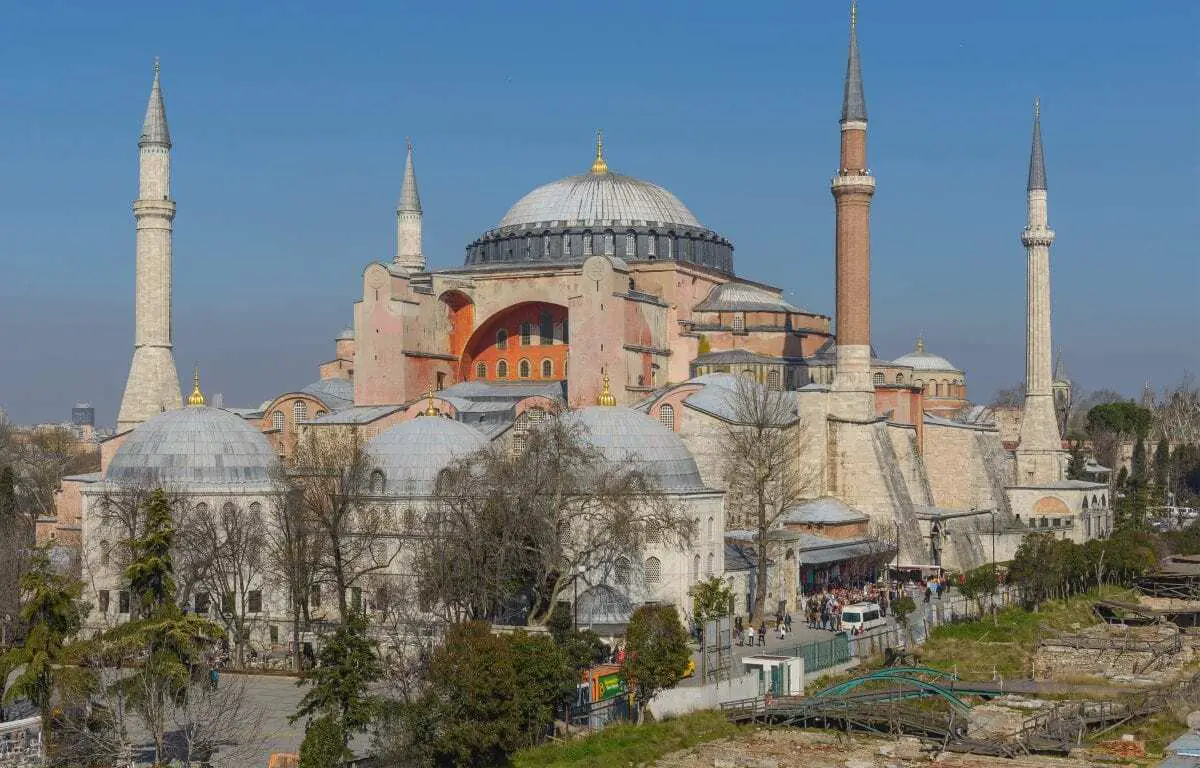Plans to turn the Byzantine-era structure, formerly a Greek Orthodox Christian patriarchal cathedral and Museum back into a mosque has been turned down by the country’s highest courts.
Built-in 537 AD on the orders of the famed Byzantine Emperor Justinian, the Hagia Sophia is considered the epitome of Byzantine architecture and served as the seat of the Ecumenical Patriarch of Constantinople.
At the fall of the Byzantine Empire, the Hagia Sophia had been converted into a mosque when the Ottoman Empire conquered Constantinople in 1453. The bells, altar, iconostasis, and other relics were destroyed and the mosaics depicting Jesus, his Mother Mary, Christian saints, and angels were removed or plastered over.
Islamic features—such as the mihrab (a niche in the wall indicating the direction toward Mecca, for prayer), minbar (pulpit), and four minarets—were added. It remained a mosque until 1931 when it was closed to the public for four years and converted into a museum by Turkey’s secular government.
President Recep Tayyip Erdogan’s Islamic-leaning government has been facing calls to convert the historic monument back into a site for religious worship by the Association of Historical Monuments and Environment who submitted a bid to the Turkish courts. In its plea, the Turkish Heritage Association had claimed that barring prayers at the Hagia Sophia was breaching the right to “freedom of expression”.
Erdogan himself caused interfaith tensions by reciting the Quran’s first verse and dedicating the prayer to the “souls of all who left us this work as inheritance, especially Istanbul’s conqueror” upon visiting the museum.
The Constitutional Court, Turkey’s highest court cited technicalities as grounds to reject the bid, saying that there was no “violation of religious freedoms” by the association.
Header Image Credit – Arild Vågen





